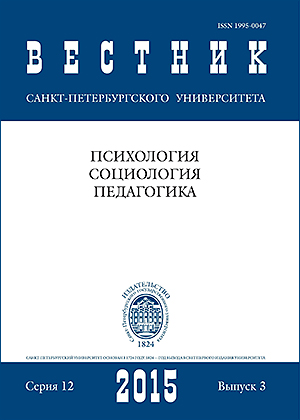EMOTIONAL COMPONENTS OF RATIONAL AND INTUITIVE THINKING STYLE IN MANAGEMENT DECISION MAKING
Abstract
The article considered correlation of rational and intuitive thinking styles (S. Epstein’s inquirer) with the characteristics of emotional intelligence (D. Lusin’s inquirer). An empirical research was carried out. It was based on a sample of the holding structural divisions heads (N = 217) studying a course of business education. Two hypotheses were tested: 1) rational thinking style allows to handle emotions as data and therefore positively associated with both indicators of understanding emotions, and with indicators of management of emotions; 2) intuitive thinking style differentiates less between the rational data and emotional evaluation, and therefore it is less connected with understanding emotions indicators and even lesser — with the ability to manage them. Both hypotheses were confirmed. Refs 18. Figs 2. Table 1.
Keywords:
intuition, rationality, emotional intelligence, predictive ability
Downloads
References
References
Downloads
Published
How to Cite
Issue
Section
License
Articles of "Vestnik of Saint Petersburg University. Sociology" are open access distributed under the terms of the License Agreement with Saint Petersburg State University, which permits to the authors unrestricted distribution and self-archiving free of charge.




